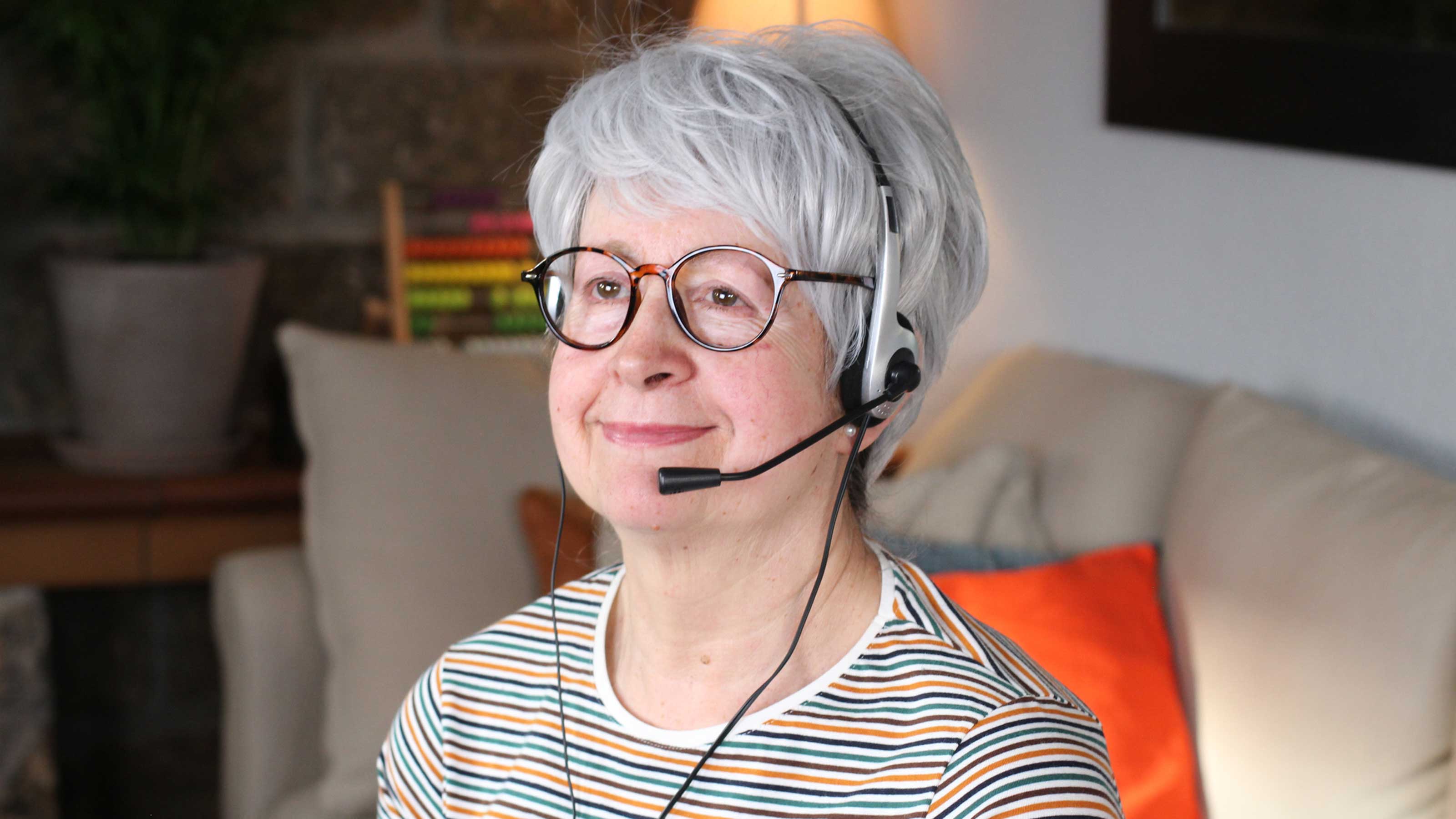Our Take on Obamacare
A lot of money is being spent to teach people to do what we've been writing about all along.

Profit and prosper with the best of Kiplinger's advice on investing, taxes, retirement, personal finance and much more. Delivered daily. Enter your email in the box and click Sign Me Up.
You are now subscribed
Your newsletter sign-up was successful
Want to add more newsletters?

Delivered daily
Kiplinger Today
Profit and prosper with the best of Kiplinger's advice on investing, taxes, retirement, personal finance and much more delivered daily. Smart money moves start here.

Sent five days a week
Kiplinger A Step Ahead
Get practical help to make better financial decisions in your everyday life, from spending to savings on top deals.

Delivered daily
Kiplinger Closing Bell
Get today's biggest financial and investing headlines delivered to your inbox every day the U.S. stock market is open.

Sent twice a week
Kiplinger Adviser Intel
Financial pros across the country share best practices and fresh tactics to preserve and grow your wealth.

Delivered weekly
Kiplinger Tax Tips
Trim your federal and state tax bills with practical tax-planning and tax-cutting strategies.

Sent twice a week
Kiplinger Retirement Tips
Your twice-a-week guide to planning and enjoying a financially secure and richly rewarding retirement

Sent bimonthly.
Kiplinger Adviser Angle
Insights for advisers, wealth managers and other financial professionals.

Sent twice a week
Kiplinger Investing Weekly
Your twice-a-week roundup of promising stocks, funds, companies and industries you should consider, ones you should avoid, and why.

Sent weekly for six weeks
Kiplinger Invest for Retirement
Your step-by-step six-part series on how to invest for retirement, from devising a successful strategy to exactly which investments to choose.
Here at Kiplinger, we specialize in giving readers advice they can act on. So we have avoided the wrangling over Obamacare till we could see how the new law will actually affect you. The state exchanges for people who don’t have group coverage are scheduled to be up and running during open enrollment starting in October -- right on cue you’ll find our story about navigating Obamacare. Unfortunately, it’s still not clear exactly how things will shake out. So I asked contributing editor Kim Lankford, our insurance specialist, for her perspective on some of the unknowns and potential surprises.
Kim notes that each state has its own exchange. Although many exchanges will be run by the federal government, she says, “I don’t think people realize how much insurers and premiums will vary from state to state, and even from region to region.”
Similarly, insurance premiums will be approved on a state-by-state basis. For instance, says Kim, “it’s no surprise” that some New York residents will see rates decline. New York has some of the highest premiums in the country because insurers have been required to charge everyone the same rate, regardless of whether they were young and healthy or older and sick. But in other states, residents could see premiums rise significantly.
From just $107.88 $24.99 for Kiplinger Personal Finance
Become a smarter, better informed investor. Subscribe from just $107.88 $24.99, plus get up to 4 Special Issues

Sign up for Kiplinger’s Free Newsletters
Profit and prosper with the best of expert advice on investing, taxes, retirement, personal finance and more - straight to your e-mail.
Profit and prosper with the best of expert advice - straight to your e-mail.
For years, Kim has advised readers that individual health insurance was very affordable for most healthy young people—as little as $100 a month (see Health Insurance for Twentysomethings). Yet many young adults still didn’t bother to buy it. Now their premiums could be much higher, says Kim, so it’s not clear whether they’ll sign up.
Subsidies could ease the burden. But with no mechanisms yet in place to verify who qualifies for coverage on the exchanges or who’s eligible for premium subsidies, the exchanges will be taking applicants at their word. So it’s possible that some people could try to game the system, or that tax issues could arise if they’re later found ineligible and have to pay the money back.
People who don’t qualify for subsidies probably don’t realize that they can still buy coverage directly from insurers outside the exchanges, says Kim. Direct-sold policies give insurers more flexibility to offer smaller networks of health care providers, which can mean lower premiums if you don’t mind the restrictions. “There’s a whole extra marketplace that people may overlook,” says Kim.
Kim has recommended for many years that people who don’t have group coverage shop for policies on eHealthInsurance.com, which already functions as a de facto national marketplace. Come to think of it, says Kim, “a lot of money is being spent to teach people to do what we’ve been writing about all along.”
Retirement advice. Every year I take our summer interns out to lunch and ask what they’ve learned during their time with us. I’m always surprised that one lesson rises to the top: the importance of saving early for retirement. “It’s crucial for me to know what to do as a 21-year-old leaving college and getting a real job,” says intern Mary Clare Fischer, now a senior at the University of Maryland. “And it’s crucial to know what to do later on, when I start tapping various accounts.”
For readers in that situation, I recommend our cover story on how to make your money last in retirement. And if you have not yet claimed Social Security benefits, I recommend that on September 23 at 6 p.m. eastern time you log on to a free webcast presented by William Meyer, our partner in Kiplinger’s Social Security Solutions. Sponsored by TD Ameritrade, the 45-minute webcast will tell you how to get the most out of Social Security. Register at kiplinger.com/go/social).
And one more piece of advice courtesy of Mary Clare: “Read Kiplinger’s."
Profit and prosper with the best of Kiplinger's advice on investing, taxes, retirement, personal finance and much more. Delivered daily. Enter your email in the box and click Sign Me Up.

Janet Bodnar is editor-at-large of Kiplinger's Personal Finance, a position she assumed after retiring as editor of the magazine after eight years at the helm. She is a nationally recognized expert on the subjects of women and money, children's and family finances, and financial literacy. She is the author of two books, Money Smart Women and Raising Money Smart Kids. As editor-at-large, she writes two popular columns for Kiplinger, "Money Smart Women" and "Living in Retirement." Bodnar is a graduate of St. Bonaventure University and is a member of its Board of Trustees. She received her master's degree from Columbia University, where she was also a Knight-Bagehot Fellow in Business and Economics Journalism.
-
 How Much It Costs to Host a Super Bowl Party in 2026
How Much It Costs to Host a Super Bowl Party in 2026Hosting a Super Bowl party in 2026 could cost you. Here's a breakdown of food, drink and entertainment costs — plus ways to save.
-
 3 Reasons to Use a 5-Year CD As You Approach Retirement
3 Reasons to Use a 5-Year CD As You Approach RetirementA five-year CD can help you reach other milestones as you approach retirement.
-
 Your Adult Kids Are Doing Fine. Is It Time To Spend Some of Their Inheritance?
Your Adult Kids Are Doing Fine. Is It Time To Spend Some of Their Inheritance?If your kids are successful, do they need an inheritance? Ask yourself these four questions before passing down another dollar.
-
 Stick With Your Plan
Stick With Your PlanFeature Timing the market is nearly impossible. The worst thing you can do is sell stocks when prices are tumbling.
-
 Complain and Be Heard
Complain and Be HeardFeature Getting our money back for the extended warranty and gap insurance we didn't want took patience and persistence.
-
 Getting Good Service
Getting Good ServiceFeature We rated the customer service of large financial service firms for accessibility, reliability, responsiveness and knowledgeable answers.
-
 A Level Playing Field
A Level Playing FieldFeature Doug Glanville says baseball can provide a great example of teamwork, fairness and communication for the U.S.
-
 Why I’m Optimistic
Why I’m OptimisticFeature If we look ahead and see straight—and focus on what’s good for all of us—we will emerge from the darkest hours even stronger.
-
 Reaching for a Lifeline
Reaching for a LifelineFeature The theme of this issue is what to do about your money in the time of the coronavirus and a distressed economy.
-
Home Sweet Asset
Feature A home is a valuable and versatile financial tool that can help you increase your wealth.
-
 100 Years of Advice
100 Years of AdviceFeature Happy birthday to us! We’ve got plenty of trustworthy, valuable advice for the future, too.